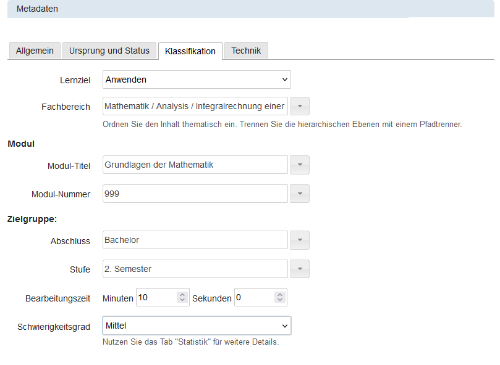02 Standard Compatibility
IMS QTI
The globally recognised IMS Question and Test Interoperability (QTI) specification 2.1 forms the conceptual basis of the ONYX Testsuite. Almost all valuable functionalities of the Onyx Testsuite rely on this standard. In addition to the interchangeability of contents, the use of QTI offers several further advantages. The strict separation of content and layout as well as the XML-based mapping of all test and task contents lay the foundations for both an independent final format and the possibility to edit existing contents. The IMS QTI specification provides that the test contents are replaced in the form of an IMS content package. This file archive contains a summary of all test data, the LOM metadata, and all included media. Formulas are described in LaTeX notation within the test data.
In addition to the standard-compliant storage of the test data, ONYX also stores the result data in accordance with IMS QTI. The IMS QTI report file contains all test evaluation data, including the learner responses, time stamp, and points gained. In the case of a manual evaluation, the result file will be expanded, which also enables a transparent and understandable evaluation process. A CSV export of the results is further possible.
The ONYX editor offers the possibility to import and export test data to other formats such as IMS QTI v1.2. The system manufacturers gave IMS QTI v1.2 a very heterogeneous design, which is why the import and export is system-specific. The IMS QTI v1.2 import has been tested for Blackboard, WebCT, and OLAT. To be able to use the created test data also in paper-based test scenarios, the ONYX editor additionally contains a PDF export. Beyond that, various conversions for proprietary formats have been realised so far.
IEEE LOM
ONYX supports large parts of the open IEEE Learning Object Metadata (LOM) standard. The metadata are thus described in XML notation in the test data’s IMS manifest. Which metadata are actually displayed to the author in the ONYX editor can be determined via a metadata configuration.
Standard metadata profile


